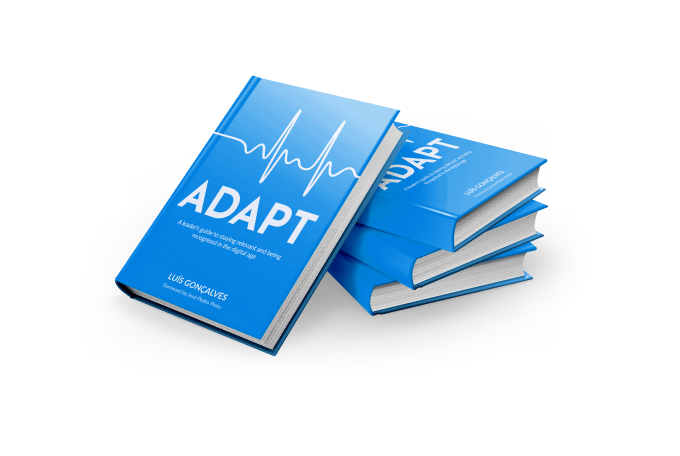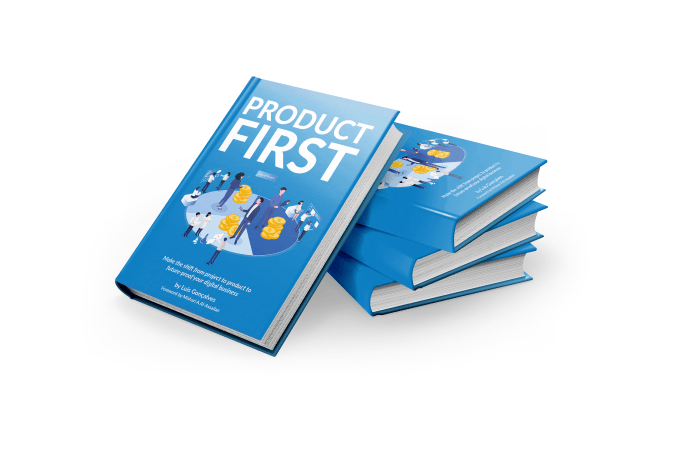Share this
What Is An Scrum Manager Or An Agile Manager
by Luis Gonçalves on Jun 12, 2024 10:54:58 AM

I have worked with Agile Software Development for several years, and during all these years I´ve seen the same problem over and over again: very few companies understand what a Scrum Manager Or Agile Manager and his role inside of the organization is.
Most businesses out there still believe that Scrum Managers Or Agile Managers are line managers and their primary function is to take care of people. “My primary job is to help my direct reports,” they say…
Hundred years ago two gentlemen called Frederick Winslow Taylor, and Henry Ford completely changed the industry game. At that time society was stable, static and not dynamic. There was not much competition, and the markets were slow.
Companies could absorb the daily uncertainties of doing business in a better way using centralize and hierarchical organizations. At that time managers were the gatekeepers of all decisions and delegated the execution down to the workers. Taylor explained that an organization worked like a machine. Small parts connected with each other to create a bigger part.
These people were under the close supervision by their superiors who enforced compliance using punishments or extrinsic rewards. This period was called the manufacturing era. Unfortunately, this time, a still exists today.
We can observe this attitude in most of the existent companies in our society, but why do companies still have this approach?
I have been talking with a lot of managers, and they always tell me the same thing: “Workers need us because they are not mature to be left alone.” Now I must say this is quite funny 🙂 (ironically said). They are not mature. Follow my thought for some moments.
I work within the IT industry; this means I work with brilliant software engineers on a daily basis. Usually, these same software engineers have a masters degree or even a Ph.D. degree. These people are one of the smartest people in our society.
IT is an international environment, most of the times these are the people who moved away from their home country to a foreign country to try a better life. Usually these people do not speak the language of a foreign country, but still, they can manage the day to day life without a problem (most of the cases).
These guys, are the same guys that have house loans, raise kids and live an entirely normal life outside of their daily job. So do you think these guys cannot be left alone during working days because they are not mature enough?!
Our society is different than it was when Ford and Taylor took over. The pace of today’s society is unpredictably fast and chaotic. The predictability from other times is not present anymore. Today most of the jobs are in services, making most of today’s worker’s knowledge workers instead of manual, manufacturing workers.
Organizations must be fast, must innovate and must adapt to their customers´ needs. Decisions cannot be made in a convenient way anymore; this would be too slow and inefficient for companies. To solve these problems, companies need to trust their employees allowing them to decide what is the best for the customer and helping them to solve their problems.
This requires companies to self-empower people and give them freedom to enable them to decide what is the best for the current environment. We still believe that people are immature, and they need a manager to approve vacations or help them with the next necessary training.
‘Theory X’ and ‘Theory Y’ are theories of human motivation and management. They were created and developed by Douglas McGregor at the MIT Sloan School of Management in the 1960s. These methods describe two contrasting models of the workforce motivation in Human Resource Management: organizational behavior, organizational communication, and organizational development. (original article here)
If you as a manager, manage people believing they will be lazy and immature, people will require someone to change their diapers or approve their vacations
On the other hand, if you treat people like grown ups believing they can manage their life and their work, you will get foreign workforces.
So What is a Scrum Manager or Agile Manager
Organisational Change Artist - he/she should be one of the persons guiding the organization towards agile.
Boundary Keeper - reinforcing boundaries both within the team and between the team and the rest of the organization.
Value Maximiser - one of the persons managing the portfolio of projects. He/she is a product owner, but on a bigger scale, always asking what is the highest business value project in the organization.
Lean Manager - will use lean thinking to improve organizational flow so that the value that teams deliver can be delivered without delay.
Organisational Impediment Remover - will navigate trough the organization and remove all the impediments that are blocking teams to deliver value to customers.
Team Champion - will coach agile teams helping them to achieve fantastic results.
The previous definitions were taken from Lyssa Adkins and Michael Spayd workshop: "Coaching Agile Teams Workshop".
So what is your role as Scrum Manager Or Agile Manager?
I want to be VERY CLEAR; I believe that managers have the best intentions in the world, and they want to help their employees. But if they want to help their guys they need to tackle THE SYSTEM, not people. There is a very powerful quote by W. Edwards Deming:

Some years ago, I had the opinion that managers were just a waste for the organization. Nowadays, my mind is a bit mature, and I realize how important the managers are. However, I want to make sure that you understand that their responsibility is to work in the system, not in people. Deming also said that 95% of organisations´ problems are within the system, and only 5% are related to people.
So what can I do as Scrum Manager or Agile Manager?
I believe that human beings can learn a lot from each other. Reading is one of the easiest ways. I believe there are hundreds of books out there that are great to help you in your daily job as a System Worker. However, I want to point out to three books I believe are mandatory for any manager who wants to improve the system.
- Out of the Crisis – W. Edwards Deming
- V Discipline – Peter Senge
- The Principles of Product Development Flow – Donald G. Reinertsen
I am sure when you read these books you will be so inspired to start working in the system that you will have problems where to start.
Now I want to give you some ideas what you can start with even without reading these books. If you are involved with Agile Software Development, you have a bunch of teams that come to you with outcomes of Agile Retrospectives that cannot be solved by their teams. This is a very simple way to start working with the system problems.
For example, if you apply Agile Portfolio Management, you might have an Enterprise Kanban Board where you can track what is going in the company. Things like flow, throughput, lead time, cycle time, the cost of delay, etc. are visible to everyone. You as a System worker should start talking with your colleagues and think how could you improve the system to deliver more value faster to your clients.
If you run Organisational Agile Retrospectives, several issues will be found in Agile Retrospectives. Who is better than Scrum Managers Or Agile Managers to take care of those topics?
I have been developing a tool to help Scrum managers or Agile Manager do their job. We have been working with some companies whom we contribute to ramp up Organisational Impediment Boards. These boards are tools for businesses to track significant problems that local teams cannot solve.
Scrum Managers Or Agile Managers' responsibility is to get together with other managers and Senior Management and address these problems to create High Performing Organisations.
Below you can see a model that I developed for my clients. This model shows the impediment board in the centre of everything. A big part of Agile managers is to get rid of the topics that are part of the board.
.png?width=3370&height=2384&name=Organisational-Impediment-Board%20(1).png)
I am sure I did not tackle all the possibilities of what a Scrum Manager Or Agile Manager does on a daily basis, but I believe I guided all Scrum Managers Or Agile Managers out there who want to improve and do impactful work on regular basis.
Did you like this article?
We enable leaders to become highly valued and recognized to make an impact on the World by helping them to design Digital Product Companies that will thrive and nourish in the Digital Age, we do this by applying our own ADAPT Methodology®.
Share this
- Agile Methodologies (18)
- Product Strategy (18)
- OKRs (16)
- Scrum (16)
- Product Mindset (14)
- Project To Product (10)
- Agile Retrospectives (9)
- CoPs (9)
- Knowledge Sharing (9)
- Time To Market (8)
- Product Discovery (7)
- Continuous Improvement (5)
- Strategy (5)
- Scrum Master (4)
- Content Marketing Strategy (3)
- Product Owner (3)
- Technical Excellency (3)
- Digital Transformation (2)
- Innovation (2)
- Scaling (2)
- Team Building (2)
- Business Model (1)
- Cost Of Delay (1)
- Customer Feedback (1)
- Customer Journey (1)
- Customer Personas (1)
- Design Thinking (1)
- Digital Leadership (1)
- Digital Product Tools (1)
- Go To Market Strategy (1)
- Google Design Sprint (1)
- Lean Budgeting (1)
- Lean Change Management (1)
- Market Solution Fit (1)
- Organisational Impediments (1)
- Outsourcing (1)
- Product (1)
- Product Metrics (1)
- Product Roadmaps (1)

Organisational Mastery
Get your free copy

ADAPT
Get your free copy

Product First
Get your free copy
